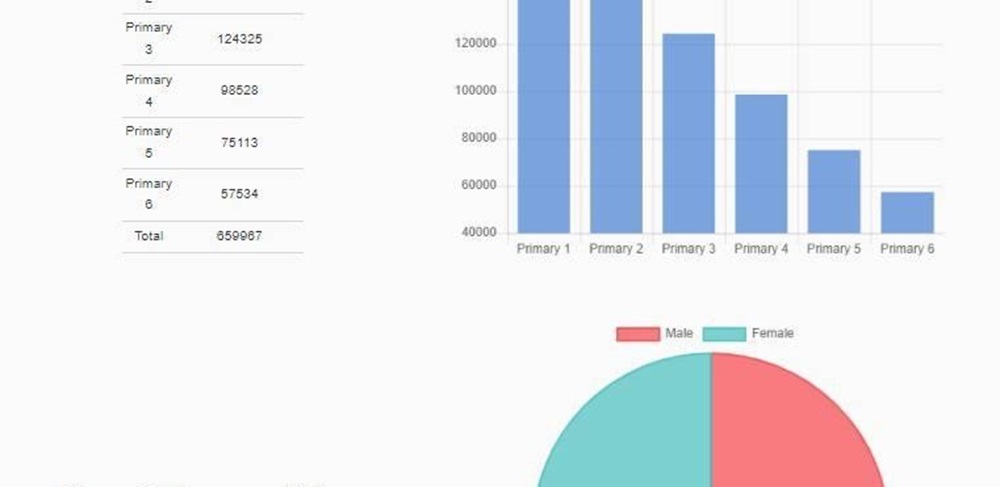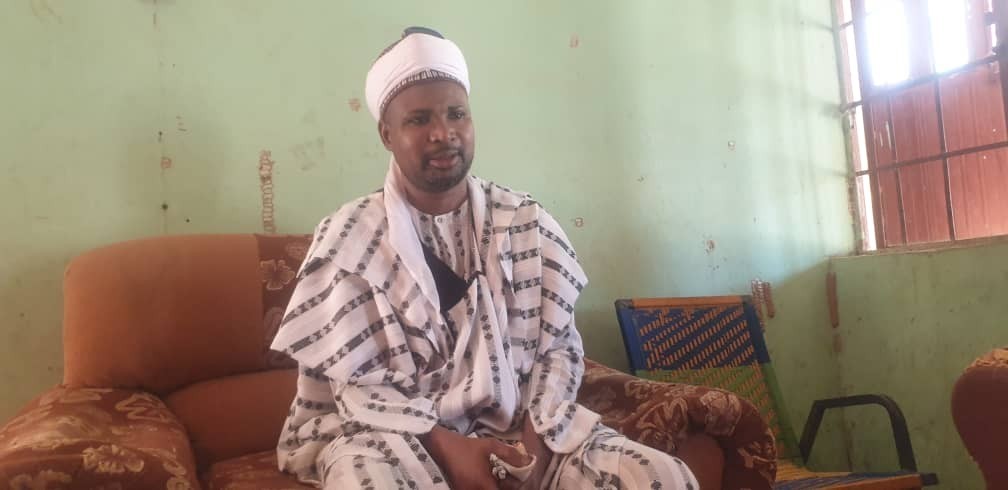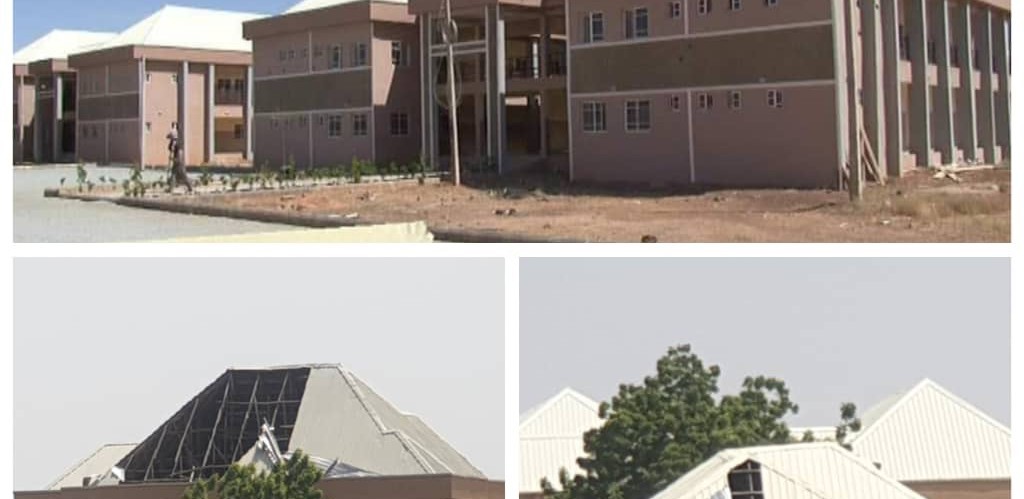INVESTIGATION: How Billion Naira School Project In Sokoto Rots Away Amid Rising Cases Of Out-Of-School Children
At fourteen, Juwairiya Abubakar has had no formal education, rather, she was forced by her parents to serve as guide to a 60-year-old visually-impaired woman living in the neighbourhood at Balle town, the headquarters of Gudu Local Government Area (LGA) in Sokoto State.
By Juwairiya’s account, she had daily engaged in seeking alms on the streets of the community, which shares a border with Niger Republic. For eight years, this has been her only occupation at an early stage of her life.
Advertisement
“I just grew up to realize myself leading the woman to solicit for alms as a street beggar. I have never been to any formal school in my entire life. I only worked for a blind beggar who usually gave me N100 or more in return depending on what we got for the day,” she said in Hausa.
The story of Safiya Isah is like that of Juwairiya. At 11, she has never been into the four walls of a classroom, despite having her food shed in front of the community’s only primary school.
When asked whether she was not going to school, with an innocent smile, Safiya narrates how her mother encouraged her into hawking cooked food at the community’s school gate to help improve the family’s finances.
“My mother only cooks food for me to come and sell here,” she said.
Advertisement
Investigations by THE WHISTLER had shown that despite the importance of education, Gudu Local Government Area still lags behind in the enrolment of girl-child like the duo of Juwairiya and Safiya who are currently out of school.

Gudu, A Deprived Community
Before now, Gudu has remained the only local government area in Nigeria without a senior secondary school. This fact has been reported by several media outlets.
The council is also among the leading LGAs with the highest out-of-school children, a factor pushing Sokoto state below the table of UNESCO’s report that over 20 million children are out-of-school in Nigeria.
Advertisement
A survey conducted in 2013 by the state’s Ministry of Education showed that out of 1,890 students in junior secondary schools in the local government, only one of them is female.
Statistics from the Sokoto State Annual School Census conducted between 2015 and 2016 showed that out of 250,774 female students enrolled in the public schools across the state, only 25,066 were able to pass through senior secondary school, while just 6,615 could further their education to tertiary level.
Between 2016 and 2017, the census showed a slight decrease of about 24,663 female students out of 254,678 female students enrolled from primary school level. These statistics showed more females either stopped schooling after their elementary stage or dropped out of Senior Secondary education.
Mr. Taofik Adesina, an educationist in Sokoto believes that the gender disparities could be linked to the current insecurity challenges in the state. According to him, “In countries affected by conflict like Nigeria, girls are more than twice more likely to be out of school than girls living in non-affected countries.”
He notes further that “The gender disparity grows at the secondary level, where just 24 percent of countries have achieved gender parity in upper secondary education and 42 percent in lower school.”

Advertisement
Despite N1bn School, Education Eludes Gudu Children
In 2016, the Sokoto State Government gave approval for the establishment of a model boarding secondary school in Balle, Gudu council headquarters.
The announcement led to wide jubilation among the populace. Musa Dan Magaji, a resident of the area, recounted how the news of the school project ignited celebration in the state.
“We heard it first on the state-owned radio, Rima Radio, and everyone was delighted. It was a good development for us. But since the project was completed, there is no official information on why they (the government) have not been able to put it to use.”
THE WHISTLER recalls that Abdulkadir Jeli Abubakar, the then Commissioner for Information, said N1 billion was earmarked for the project while 30 percent mobilization fee had been approved for construction work to begin.
The contract, according to investigations, was awarded to an indigenous construction company, Calder Construction Company Limited.
Curiously, Calder Construction Company Limited was incorporated with the Corporate Affairs Commission (CAC), barely a year before it was awarded the billion naira contract.
The specifications of the contract include blocks of modern classrooms, a laboratory, a library, administrative blocks and an assembly hall.
Others are school clinics, boarding hostels, sports complex, corps members’ lodges, staff quarters and landscaping, among others.
“We have a junior secondary here in Balle Town and all we wanted is more classrooms to upgrade it to senior classes. That could have solved our problem.
“Now, we have a school worth a billion naira that is not functioning while our junior School can be upgraded to a full-grown secondary school to serve the community,” Taminu Adamu opined.
Failed Promises As School Remains Abandoned
The current situation of the Gudu Model School goes against several promises made by the previous government which initiated the project.
THE WHISTLER learnt that at the foundation laying ceremony in 2016, the then governor, Aminu Tambuwal, who initiated the school project had promised the community that academic activities would begin in the school immediately after completion.
The erstwhile governor also promised to construct other new schools across the state to accommodate the 1.2 million new students expected to be enrolled in 2017 under the out-of-school enrolment projection.
Tambuwal also said his government would cater for its citizens already in schools and ensure that those out of school are admitted and given quality education without delay by constructing no fewer than 160 new primary and secondary schools across the state.
But long after the completion of the school, the model institution has not been put to use for inexplicable reasons. Also, the Tambuwal administration did not embark on the construction of new schools before the expiration of its tenure.
During a visit to the school in September last year, the gigantic buildings still lay in waste as they now stand in the midst of growing bush. Various blocks of classrooms were seen under padlocks with no sign that they would be occupied soon.

School Handed Over To Govt
Malam Kabiru Mahamuda Sarki, Project Manager at Calder Construction, the firm which handled the construction said the school project was completed according to the specifications and had since been handed over to the state government.
“The project was awarded in June 2016 while the work commenced in December the same year. That is all I can say.” Kabiru said.
He was unwilling to speak further to THE WHISTLER despite listening to many enquiries about the school project during a phone conversation.

Govt Officials Can’t Explain Why Model School Is Abandoned
For weeks, THE WHISTLER made several efforts to get government officials to provide valid information about the school project but without success.
The officials include the commissioner in-charge of Basic and Secondary Education, Hon. Tukur Alkali, his predecessor, Hon. Bello Guiwa and Special Adviser to the governor on Special Projects, Ibrahim Hassan.
Guiwa simply responded that the school was completed but not put into use because of insecurity in the community.
“As a mother, will you allow your daughter to be taken to such a school?” Guiwa said while ignoring further questions about the contract.
THE WHISTLER first visited Alkali’s office on October 22, 2023, but his secretary said he was not in town. A few weeks later, on October 4, THE WHISTLER called the Commissioner to confirm his availability for a possible interview but he did not respond. He also did not respond to text message reminders sent to his mobile number in subsequent efforts to speak with him.
THE WHISTLER submitted a Freedom of Information Act (FOIA) request for information on the project to the state Commissioner for Basic and Secondary Education as a last resort.
The FOIA request was delivered in person by our reporter to the office of the commissioner on November 5, 2023. The FOI requested details of the contract award, record of progress or completion, needs assessment as well as amounts and timeline of release of funds to Celdar Construction Company.
The letter also requested an interview with the commissioner on the state of abandonment of the school project, including the recent removal of some roofing sheets affected by winds and rainstorms and what his ministry planned to do to ensure that the project is put into proper use.
As at the time of filing this report, the commissioner neither responded nor signified interest in answering the questions raised in the letter.
However, a top official who pleaded anonymity hinted that poor planning and alleged ulterior financial motives on the part of the previous government officials characterized the multi-billion school contract.
“I believe the present government is studying all projects abandoned by its predecessor and Gudu Model Secondary School is among the red flags, especially, the procurement process and why such huge monies were expended on a project located in a security-prone community like Gudu.
“It is also good that you are doing media investigations to further awaken the government on what to do, especially as it is now affecting the growing out-of-school children in the community,” the source said while responding to THE WHISTLER‘s inquiries.

Children Abandon Education After Primary School
Most indigent families within Gudu who spoke to THE WHISTLER said their out-of-school children now bear the brunt of the lack of higher education in the community — as many could not go beyond basic and elementary schools.
38-year-old Abdullahi Yusuf who heads the community’s only primary school said the pupils from the primary school have since moved on with their lives without pursuing further secondary education since it is not available to them.
“Most of the pupils who graduated from the primary school later abandoned their quest for higher education because there are no provisions for higher learning.
“So, they (pupils) rather sit at home to help their parents with farming or hawking wares. We want the government to either upgrade the Junior Secondary School to senior classes since the model school has not been put into use now.”
When asked about the state of security within the community based on Guiwa’s assertion, Abdullahi dismissed the concern.
“For a while, we have had security challenges in the community. However, this shouldn’t pose a threat to the learning quest of the children because other junior schools are not under locks like the Model Secondary School here.”
Abdulrahman Nasiru, a JSS 3 student said he “doesn’t know where to go after my Junior Secondary Schools Examination (JSCE), adding his elder brother finished junior secondary school last year but he is still at home.
“I don’t want to stay at home like him, my dream is to become an engineer,” he said with a glint of hope in his eyes.
The community’s Traditional Head, Aminu Aliyu Balle, urged the government to as a matter of urgency put the school into use to check the rate of out-of-school children who are plying the streets of Gudu.



